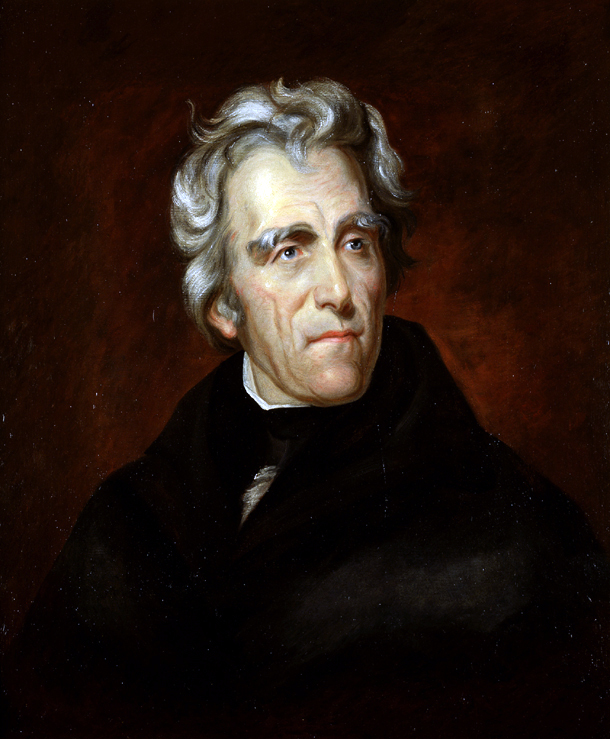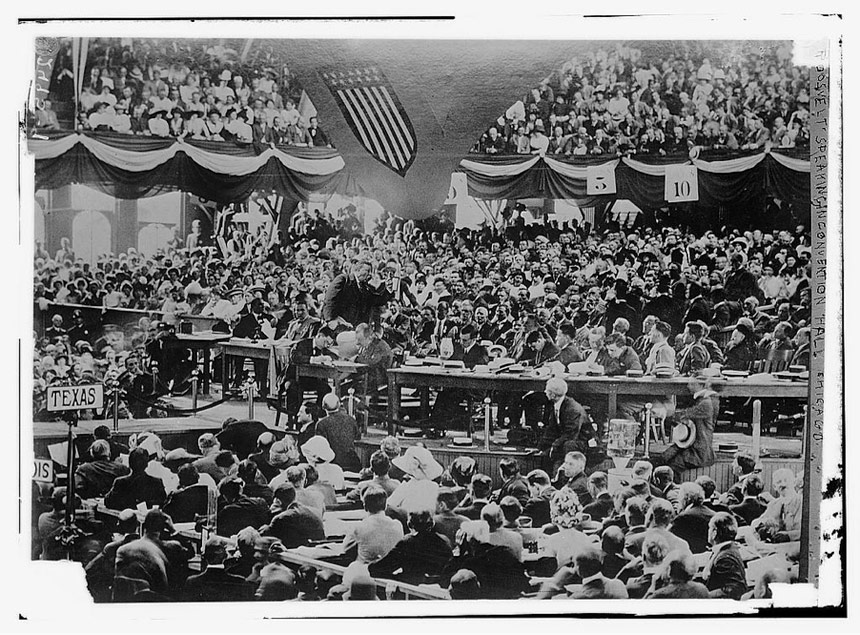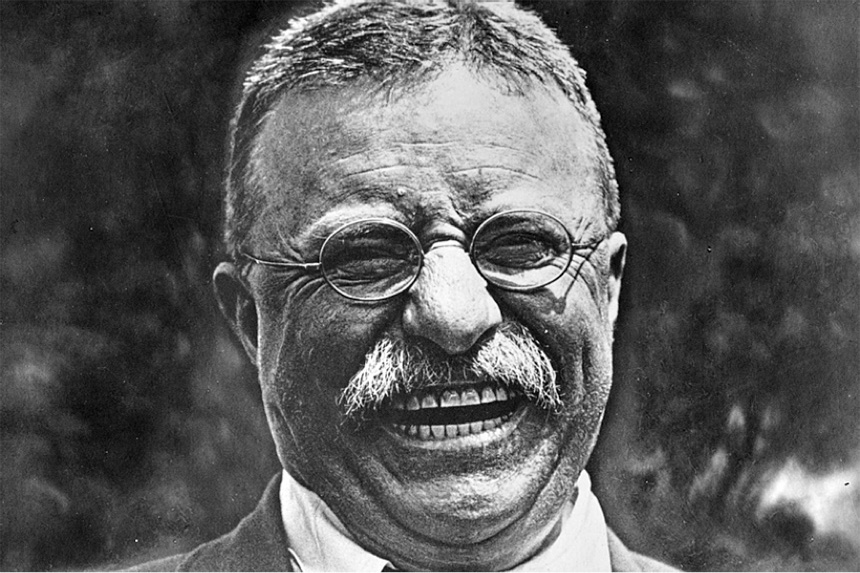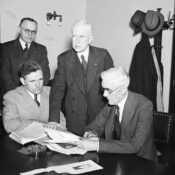Americans like to think of themselves, and their representatives, as good sports. We admire winners who are humble, generous, and respectful of their opponents. We also admire losers who take defeat with stoic acceptance, good grace, and full responsibility.
But sometimes Americans don’t get the politicians they want. Winners rub their opponents’ face in the dirt, and losers either blame others for their loss or refuse to admit defeat altogether. Here is our list of the ten sorest losers in American politics.
1. Andrew Jackson

In the 1824 presidential election, there were four candidates, all from the same party. (The opposing party had dissolved.) None of the candidates had enough electoral votes to meet the minimum number for a presidential win. Jackson had the most votes, but John Quincy Adams was close behind. In such cases, the contest was decided by the House of Representatives.
One of the other candidates, Henry Clay, allowed his congressional supporters to switch support to Adams, who then won the election. Once in the White House, Adams made Clay Secretary of State. Jackson was furious. He stormed back to Tennessee, telling everyone about the “corrupt bargain” that had robbed him of the White House. For the next four years, Jackson and his followers relentlessly attacked Adams and his administration. Jackson called Clay “the Judas of the west [who] has closed the contract and will receive the thirty pieces of silver.”
2. Teddy Roosevelt

In 1912, former President Theodore Roosevelt had fallen out with his protégé, President William Taft. He challenged Taft for the Republican primary for the coming election, confident the Republicans would turn to him. When they chose Taft instead, he stormed out of the convention and formed his own political party. Between them, Roosevelt and Taft split the Republican vote, allowing Democrat Woodrow Wilson to win.
3. Richard Nixon
After losing the presidency in 1960, Richard Nixon lost the governorship of California two years later. At a press conference following the announcement of his defeat, he addressed reporters with feigned good humor, saying, “For sixteen years…you’ve had a lot of fun… As I leave you I want you to know, just think how much you’ll be missing. You won’t have Nixon to kick around any more.” (Nixon was not just self-pitying, but absolutely wrong.)
Nixon’s speech following his 1962 loss in California. (Vimeo, University of Virginia’s Miller Center)
4. Anthony Weiner

Anthony Weiner lost his bid to become New York’s mayor in 2013, winning only 4.9% of the vote (not surprisingly). After making his concession speech, he left his campaign headquarters. As he stepped outside, reporters shouted questions at him. He made no reply as he made his way to a limousine. But once inside, Weiner responded to the reporters by raising a middle finger to them.
5. Gary Smith
In 2012, Gary Smith ran for the Republican nomination for Congress in New Mexico. When many of his nominating petition signatures were ruled invalid, he was dropped from the primary ballot. He responded by slashing the tires of the candidate who won, an act that was captured on security cameras. After posting bond, he was released, but picked up again when security cameras detected him lurking around the successful candidate’s home. He was sentenced to 30 months for “aggravated stalking.”
6. Marilyn Musgrave

Marilyn Musgrave lost re-election for a congressional district in Colorado in 2008. Rather than phone her congratulations to her opponent or give a gracious concession speech, she said nothing. She made no comment to the media, her supporters, or her staff. Six months later, according to Politico, she released a four-page letter declaring her intention to form a political action group and blaming her defeat on “extremists [who] finally spent enough money, spread enough lies, and fooled enough voters to defeat me.”
7. Ralph Nader
In 2008, Ralph Nader ran for president. He didn’t win, just as he hadn’t in 2000.
After acknowledging defeat, he said this about President-elect Barack Obama: “His choice, basically, is whether he’s going to be Uncle Sam for the people of this country or Uncle Tom for the giant corporations.” Nader was asked to clarify that comment by Fox News’ Shepherd Smith.
Smith: “I just wonder if in hindsight you wish you’d used a phrase other than ‘Uncle Tom?’”
Nader: (emphatically) “Not at all.”
8. Allen West

After losing in 2012, Florida congressman Allen West contested the vote for two weeks before releasing the weakest possible concession to his opponent. Instead of acknowledging he lost, he said, “I am announcing that I will take no further action to contest the outcome of this election.” He wished his opponent luck, but gave his supporters reason not to view the victor as legitimate. There were still unexplained “inaccuracies in the results,” West said. He knew there were voting irregularities, but now was not the time to look into them. He said, “We uncovered a lot of things that now the people can continue to pursue.”
9. Joe Miller
In 2010, Lisa Murkowski lost Alaska’s GOP primary to Joe Miller, but then she won the election with an unprecedented write-in campaign, which required a painstaking hand-count of the ballots. As days passed, Miller refused to accept the results, despite party members and the state’s newspapers urging him to concede. Miller filed a federal lawsuit alleging violations by election officials, followed by a separate state court lawsuit. “Are we a nation,” he asked, “where some bureaucrat can, in the heat of the moment, make up basically the rules by which ballots are counted?” Because of Miller’s legal challenges, Murkowski wasn’t certified until December 30. That following June, Miller was required to pay the state of Alaska $18,000 in legal fees because a judge determined that the intent of Miller’s lawsuit was to win the election and not to uphold the state constitution, as he had claimed.
10. Chris McDaniel
In 2014, Mississippi State Senator Chris McDaniel pursued the Republican nomination for U.S. Senator, but lost in nasty, gloves-off race that featured nursing home break-ins, courthouse lock-ins, and “indecent things with animals.” McDaniel said the nomination had been compromised by “literally dozens” of voting irregularities. He offered a list of 15,000 illegal or questionable votes — a list that McDaniel’s attorney was surprised to see his own name on.
Let’s Hear It for the Gracious Losers
Lastly, there is the example of an exceptional concession speech, which was made by New York representative Joe Crowley after losing the Democratic primary to Alexandria Ocasio-Cortez. Having announced his defeat, Crowley picked up his guitar and, with a backup band, played Bruce Springsteen’s “Born to Run,” dedicating it to his opponent. Now that’s gracious.
WATCH: Rep. Crowley picks up a guitar plays ‘Born to Run’ in honor of his winning opponent @Ocasio2018 who unexpectedly beat him in the #NY14 primary.
THIS is how we win. Coming together to support Democrats across the spectrum of progressive values. pic.twitter.com/oXb8dfmGcz
— Kaivan Shroff (@KaivanShroff) June 27, 2018
Become a Saturday Evening Post member and enjoy unlimited access. Subscribe now




Comments
Some would say that Murkowski, rather than Miller, was the bad loser for running against the person who beat her in the primary.
Well Jeff, I had no idea Andrew Jackson was a poor sport about his loss to John Quincy Adams, and wasn’t aware of the ‘Judas’ betrayal by Henry Clay either. To play devil’s advocate, Jackson was justified in his seeking punishment of Clay, but it should have been shorter and directed to Clay directly (a drink thrown in his face) at a humiliating time and place; not dragged out for four years undermining the nation’s progress.
Teddy Roosevelt continues to be one of our most fascinating Presidents to this day. He shot himself in the foot, for sure. I’d love it if I could go back to 1912 and have dinner with his incredible daughter, Alice, who’s even more fascinating than her father! “If you haven’t anything good to say about someone, come sit by me.” I’d love to Alice! (See the ‘8 Most Embarrassing Presidential Family Members’ in the search bar). Oh yes, DO take another look.
As far as Nixon goes, he should have been listed at #9 or 10, if he had to be included at all. I’m going to The Nixon Library next year (will be my first visit). I’ve been to Reagan’s many times, so it’s high time.
Ralph Nader did accomplish things as a consumer advocate, but should have stayed out of politics. He wrote ‘Unsafe At Any Speed’ condemning GM’s Corvair. I’ll have you know my grandfather loved his white ’61 Corvair coupe and later traded it in on the newer ’67 (also white) model. He never had a problem with it.
Anthony Weiner kept his mouth zipped outside but then gave the reporters the finger once inside. Sometimes those reporters have that coming to them. I haven’t heard anything about him in a long time, so he must be keeping his pants zipped.
Democrats will vote for Republicans, but Republicans will never vote for Democrats
The guy I voted for for Congress on Tuesday lost. He kicked all the media out of his campaign headquarters before he would talk to his supporters. I still don’t know what he said, and now I’m glad he lost.
Promenate???
None of these Are as promenate as Hillbillary’s loss to Donald Trump.